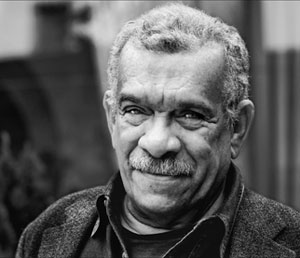WHITE EGRETS//ΛΕΥΚΟΙ ΕΡΩΔΙΟΙ
I
The chessmen are as rigid on their chessboard
as those life-sized terra-cotta warriors whose vows
to their emperor with bridle, shield and sword
were sworn by a chorus that has lost its voice;
no echo in that astonishing excavation.
Each soldier gave an oath, each gave his word
to die for his emperor, his clan, his nation,
to become a chess soldier, breathlessly erect
in shade or crossing sunlight, without hours —
from clay to clay and odourlessly strict.
If vows were visible they might see ours
as changeless chessmen in the changing light
on the lawn outside where bannered breakers toss
and the palms gust with music that is time’s
above the chessmen’s silence. Motion brings loss.
A sable blackbird twitters in the limes.
ΛΕΥΚΟΙ ΕΡΩΔΙΟΙ
Ι
Τα πιόνια στέκονται άκαμπτα στη σκακιέρα
σαν τους ολοζώντανους από τερρακότα στρατιώτες
που με γκέμια ασπίδες και σπαθιά στον αυτοκράτορά τους
ορκίστηκαν από μια χορωδία που έχει χάσει τη φωνή της.
Δίχως ηχώ σ’ εκείνη την καταπληκτική ανασκαφή.
Ο κάθε στρατιώτης ορκίστηκε, υποσχέθηκε
να πεθάνει για τον αυτοκράτορα, τη φυλή, το έθνος
να γίνει πιόνι στο σκακιέρα δίχως ανάσα ολόρθο
στη σκιά ή στη λαμπερή λιακάδα, πέραν των ωρών —
από πηλό σε πηλό κι ολότελα άοσμος.
Αν οι όρκοι ήταν ορατοί θα `βλεπαν τους δικούς μας
αναλλοίωτα πιόνια στο εναλλασσόμενο φως
έξω στο γρασίδι που σημαίες τα κύματα σπάζουν
κι οι φοίνικες αντηχούν με μουσική που είναι
χρόνος υπεράνω απ’ τη σιωπή των πιονιών. Η κίνηση φέρνει την έλλειψη.
Ένα κατάμαυρο πουλί τετερίζει στις μοσχολεμονιές.
II
Cautious of time’s light and how often it will allow
the morning shadows to lengthen across the lawn
the stalking egrets to wriggle their beaks and swallow
when you, not they, or you and they, are gone;
for clattering parrots to launch their fleet at sunrise
for April to ignite African violet
in the drumming world that dampens your tired eyes
behind two clouding lenses, sunrise, sunset,
the quiet ravages of diabetes.
Accept it all with level sentences,
with sculpted settlement that sets each stanza;
Learn how the bright lawn puts up no defenses
against the egret’s stabbing questions and the night’s answer.
ΙΙ
Με προσοχή στο φως και πώς συχνά βοηθά
τους πρωινούς ίσκιους να μακρύνουν στο γρασίδι
τους μεγαλοπρεπείς ερωδιούς να κουνήσουν το ράμφος τους και να καταπιούν
καθώς εσύ, όχι αυτοί, ή εσύ κι αυτοί μαζί, έχετε πεθάνει,
τους θορυβώδεις παπαγάλους να πετάξουν μακριά το ξημέρωμα
τον Απρίλιο να υποδαυλίσει τον αγάπανθο
στον τυμπανιώδη κόσμο που φέρνει δάκρια στα κουρασμένα σου μάτια
με τους δυο συννεφιασμένους φακούς, ανατολή, δύση
ο άφωνος όλεθρος του διαβήτη.
Δέξου τα όλα με ίσιες προτάσεις
με την ανάγλυφη διευθέτηση που αποτελεί η κάθε στροφή.
Κατάλαβε ότι το λαμπερό γρασίδι δεν αμύνεται ενάντια
στου ραμφίζοντος ερωδιού την ερώτηση ή στης νύχτας την απάντηση
~WHITE EGRETS, by Derek Walcott, μετάφραση Μανώλη Αλυγιζάκη
Derek Alton Walcott, OBE OCC (born 23 January 1930) is a Saint Lucian- Trinidadian poet and playwright. He received the 1992 Nobel Prize in Literature. He is currently Professor of Poetry at the University of Essex. His works include the Homeric epic poem Omeros (1990), which many critics view “as Walcott’s major achievement.” In addition to having won the Nobel, Walcott has won many literary awards over the course of his career, including an Obie Award in 1971 for his play Dream on Monkey Mountain, a MacArthur Foundation “genius” award, a Royal Society of Literature Award, the Queen’s Medal for Poetry, the inaugural OCM Bocas Prize for Caribbean Literature and the 2011 T. S. Eliot Prize for his book of poetry White Egrets.
Walcott was born and raised in Castries, Saint Lucia, in the West Indies with a twin brother, the future playwright Roderick Walcott, and a sister, Pamela Walcott. His family is of African and European descent, reflecting the complex colonial history of the island which he explores in his poetry. His mother, a teacher, loved the arts and often recited poetry around the house. His father, who painted and wrote poetry, died at age 31 from mastoiditis while his wife was pregnant with the twins Derek and Roderick, who were born after his death. Walcott’s family was part of a minority Methodist community, who felt overshadowed by the dominant Catholic culture of the island established during French colonial rule.
Derek Walcott married Fay Moston, a secretary, but the marriage lasted only a few years and ended in divorce. Walcott married a second time to Margaret Maillard, who worked as an almoner in a hospital, but that also ended in divorce. In 1976, Walcott then married to Norline Metivier, which just like the previous two, ended in a breakup.
Walcott is also known for his passion for traveling to different countries around the world. He splits his time between New York, Boston, and St. Lucias, where he incorporates the influences of different areas into his pieces of work.
His epic poem, Omeros (1990), which loosely echoes and refers to characters from The Iliad, has been critically praised “as Walcott’s major achievement.” The book received praise from publications such as The Washington Post and The New York Times Book Review, which chose the book as one of its “Best Books of 1990”.
Walcott was awarded the Nobel Prize in Literature in 1992, the second Caribbean writer to receive the honor after Saint-John Perse, who was born in Guadeloupe, received the award in 1960. The Nobel committee described Walcott’s work as “a poetic oeuvre of great luminosity, sustained by a historical vision, the outcome of a multicultural commitment.” He won an Anisfield-Wolf Book Award for Lifetime Achievement in 2004.
Methodism and spirituality have played a significant role from the beginning in Walcott’s work. He commented, “I have never separated the writing of poetry from prayer. I have grown up believing it is a vocation, a religious vocation.” Describing his writing process, he wrote, “the body feels it is melting into what it has seen… the ‘I’ not being important. That is the ecstasy…Ultimately, it’s what Yeats says: ‘Such a sweetness flows into the breast that we laugh at everything and everything we look upon is blessed.’ That’s always there. It’s a benediction, a transference. It’s gratitude, really. The more of that a poet keeps, the more genuine his nature.” He also notes, “if one thinks a poem is coming on…you do make a retreat, a withdrawal into some kind of silence that cuts out everything around you. What you’re taking on is really not a renewal of your identity but actually a renewal of your anonymity.”
http://www.wikipedia.org







